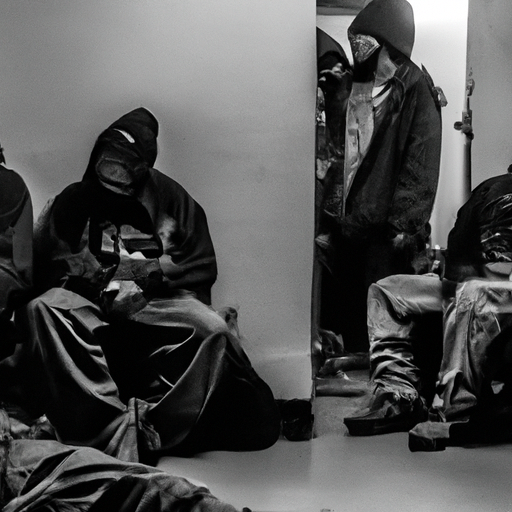Canadian Opioid Crisis: A Closer Look at the Alarming Surge in Ontario Shelter Deaths
The escalating Canadian opioid crisis has been a rising concern, but a recent piece by the MSN zeroes in on an even more disturbing aspect of the issue. An important segment of our society that often goes unnoticed, the homeless population, is being disproportionately affected by this crisis. The COVID-19 pandemic has only served to exacerbate the issue.
Opioid crisis in Ontario Shelters: The Damning Statistics
The sobering article points out that opioid-related deaths in Ontario’s homeless shelters have more than tripled during the pandemic, a wrenching testament to the dire state of the opioid crisis. Drawing from a recent study published in the Journal of the American Medical Association (JAMA) Network Open, the article establishes that those experiencing homelessness are now 27 times more likely to die of an overdose than the general public. This distressing revelation lays bare a major issue with inequity in health and society.
Exploring the Root Causes
While the initial trigger for the opioid crisis is multi-faceted, with over-prescription and misuse contributing heavily, the recent spikes amongst the homeless point towards compounded reasons. The focus on combatting the COVID-19 pandemic has stretched healthcare resources, leading to decreased focus on successfully managing the opioid crisis. Isolation due to pandemic-induced lockdowns has also contributed, leading to increased mental health issues, which are known to exacerbate substance use.
Impact on Crime Rate
There has been an upswing in crime rates in conjunction with the surge in opioid use, an expected outcome given the increased desperation amongst those affected. Petty crimes like drug possession charges, break-ins, and theft indicate the severity of the opioid crisis, and its wider societal implications.
Counter Efforts and their Shortcomings
Efforts to combat the opioid crisis have not been entirely lacking, though they have failed to gain significant traction. The opioid class action lawsuit settlement to hold pharmaceutical companies accountable is a step towards recognizing the problem. However, the $2 billion settlement will merely act as a band-aid on the gaping wound of systemic failure in addressing mental health and homelessness issues.
An undoubtedly resultant problem of the opioid crisis is the increased need for Naloxone, a medication used to counteract the effects of opioid overdose. However, the prohibitive cost and lack of widespread distribution have severely hindered its effectiveness.
Key Points in Summary:
- Deaths from opioid use in Ontario’s homeless shelters have tripled during the COVID-19 pandemic.
- Those experiencing homelessness now have a 27-times greater chance of dying from an overdose compared to the general population.
- Factors contributing to the spike include healthcare resource allocation towards the pandemic and increased isolation leading to exacerbated mental health issues.
- The opioid crisis has seen a correlation with increased crime rates.
- Efforts to counter the crisis, including the opioid class action lawsuit and the increased usage of Naloxone, have been insufficient.
Concluding Thoughts: Rising to the Challenge
In summary, the opioid crisis in Canada has escalated dramatically, with the homeless population in Ontario bearing a disproportionate amount of the burden. The COVID-19 pandemic has intensified the crisis and consequential crime rates. Efforts to counteract the crisis, such as the opioid class-action lawsuit and the increased usage of Naloxone, though commendable, have fallen short.
It is crucial, moving forward, for policymakers, healthcare providers, and society at large to understand the severity of this issue and allocate appropriate resources and support. Looking beyond the pandemic, long-term, sustainable solutions need to be crafted and implemented to prevent the opioid crisis from spiraling even further out of control. It is a call to collective responsibility to protect the most vulnerable amongst us against this dire crisis.
